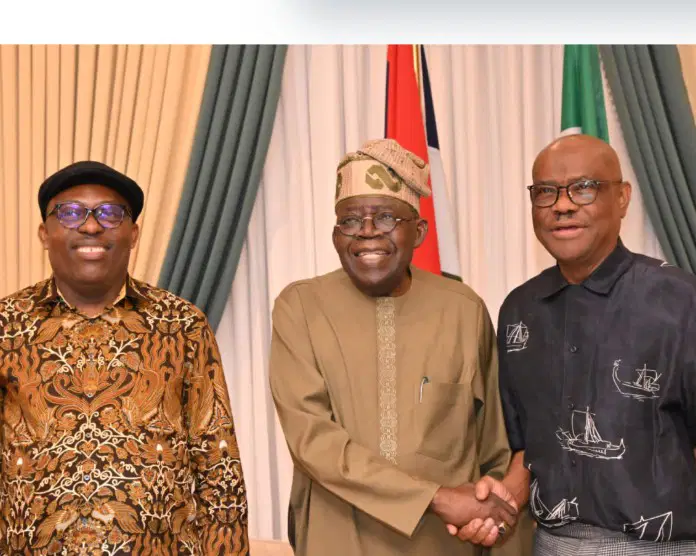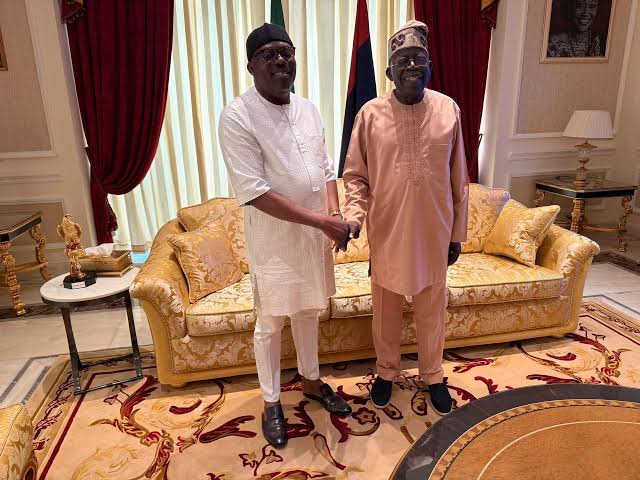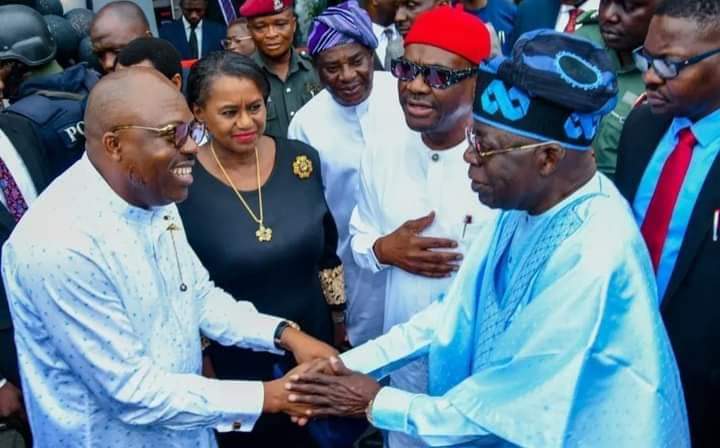Africa
The Rivers Capitulation: How Fubara’s “Peace” Sold a State’s Sovereignty -By Jeff Okoroafor
Fubara had a chance to be a hero. He had a chance to stand on the constitution and challenge this overreach in the Supreme Court, not just for himself, but for the future of Nigeria’s federalism. He chose instead to be a survivor, trading the dignity of his office for the comfort of his seat.

The scenes from Port Harcourt were meticulously orchestrated: the jubilant crowds, the triumphant arrival, the humble acknowledgment. Governor Siminalayi Fubara returned to Rivers State not as a leader reclaiming his stolen authority, but as a vassal returning to his fiefdom after receiving instructions from his overlords. His statewide broadcast following the lifting of the six-month emergency rule was not a speech of resilience; it was a stunning, cowardly document of total surrender that formalizes the complete political annexation of Rivers State by President Bola Tinubu and the FCT Minister, Nyesom Wike.

This was not a return to power. It was the ceremonial unveiling of a puppet regime.
A leader who had his democratic mandate suspended by an arguably unconstitutional federal overreach had a duty to his electorate to defend their choice. Instead, Governor Fubara’s speech was littered with the language of a subdued subordinate.

He “accepted to abide by the declaration.” He “chose to cooperate.” He found his conviction in the idea that “no sacrifice was too great.” But what exactly was sacrificed? Not his personal comfort, evidently. The sacrifice was the sovereignty of the Rivers State government, the principle of federalism, and the will of the people who elected him. He sacrificed them on the altar of political convenience, draping his capitulation in the hollow rhetoric of “peace.”
His gratitude to President Tinubu is particularly galling. The President is thanked not for upholding the constitution he swore to defend, but for his “kindness” in lifting a state of emergency that should never have been declared in the first place. Fubara’s pledge of “utmost loyalty and eternal gratitude” to Tinubu is a stark and disturbing contradiction. His primary loyalty is sworn to the constitution and the people of Rivers State, not to an individual in Abuja. This declaration reframes his governorship as a privilege granted by Tinubu, not a right bestowed by the electorate.
The most telling, and indeed tragic, part of Fubara’s address was his effusive praise for Nyesom Wike. He thanked his predecessor and current tormentor for his “support” in restoring peace—a peace that was only necessary because Wike himself orchestrated the crisis.
This is the political equivalent of thanking an arsonist for helping to put out the fire they started. By acknowledging Wike as “Our Leader” and placing him in the same category of peacemakers as the President, Fubara has publicly accepted his diminished role. He is no longer the chief executive of the state but a junior partner in a political arrangement where Wike retains ultimate control. The “hatchet” they have buried was not buried in the ground; it was buried in the back of Rivers’ political autonomy, with Fubara holding the handle.

Sim Fubara and Tinubu
Fubara’s pledge to now focus on “infrastructure, education, healthcare, economic revival, and welfare of the people” rings utterly hollow. How can a governor who could not—or would not—defend his office from a hostile takeover be trusted to defend the interests of the people?
His promise to “work harmoniously with the Rivers State House of Assembly” is code for his acceptance of the pro-Wike assembly members whose seats were vacated by a court order he has now legitimized through his cooperation. This isn’t harmony; it is subjugation. He is promising to govern with the very forces that sought to impeach him, effectively making him a prisoner in his own government house.

The message from Abuja to every governor in Nigeria is now chillingly clear: fall in line with the central authority’s political interests, or face administrative annihilation. The use of a state of emergency, a tool designed for existential threats like insurrection or natural disaster, as a blunt instrument for political housekeeping sets a dangerous new precedent. Tinubu’s administration has demonstrated that it is willing to suspend democracy to manage intra-party squabbles and discipline recalcitrant subordinates.
Fubara had a chance to be a hero. He had a chance to stand on the constitution and challenge this overreach in the Supreme Court, not just for himself, but for the future of Nigeria’s federalism. He chose instead to be a survivor, trading the dignity of his office for the comfort of his seat.
In the end, the “man of peace” hailed by the crowds is, in fact, a man of surrender. Rivers State may now have peace—the peace of a conquered territory, the silence of a captured prize. But its governor is no longer its leader. He is a chief administrator, taking orders from Abuja, presiding over a state that has lost its political voice. The emergency rule is over, but the occupation has just begun.
God save us all!
Jeff Okoroafor is a social accountability advocate and a political commentator focused on governance, accountability, and social justice in West Africa.



























